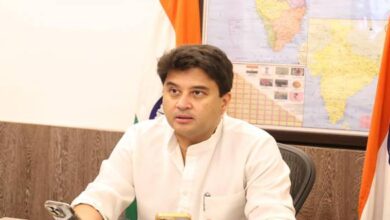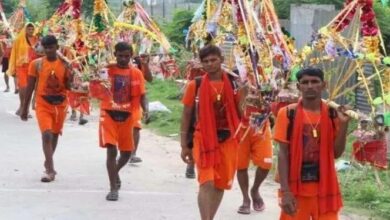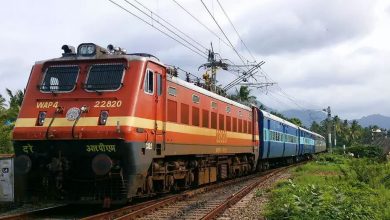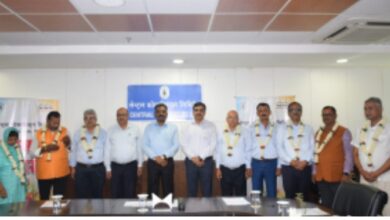Modi Government Should Seriously Consider Concerns Expressed By The Chief Justice of India
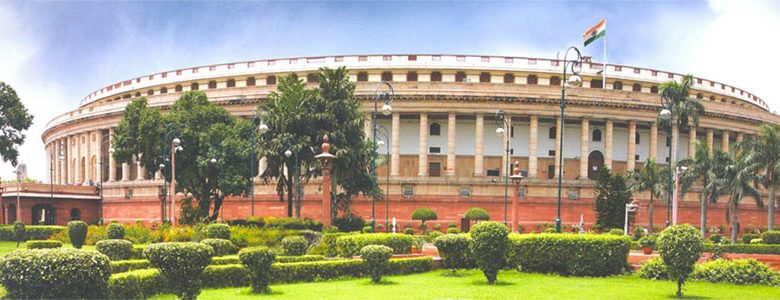
CJI has expressed concerns on Parliament passing important Bills without discussion – opines C.Srikumar General secretary of All India Defence Employees Federation
75th Independence Day was celebrated throughout the country inspite of the 2nd wave of Covid-19 pandemic in many parts of the country. The PM in his 8 th Consecutive speech which he addressed from the Rampats of the Redfort as usual coined a new phrase of “subka sath, subka Vikas, subka viswas, subka prayas” which means that development for all, the trust of all, the striving of all. On the same day the Chief Justice of India expressed his deep concern about the manner in which the Bills are passed in the Parliament without any discussion. He lamented the sorry state of affairs with regard to the parliamentary debate in the country.
He has stated that there was a lot of ambiguity in Laws passed by the Parliament, which is causing litigation, inconvenience to the citizens, courts, and other stake holders. He has further stated that “we don’t know for what purpose these laws are made.” He recollected how the debate and discussion in the parliament were constructive. They could elaborately discuss the legislation taking place. Laws used to be discussed and deliberated. Unfortunately over a period of time, he stated about what is happening in the House. In the absence of quality debate, Courts are unable to fathom the intent and object of the new laws.
The concerns expressed by the chief Justice of India cannot be brushed away just like that. Recently, in the monsoon session of the Parliament 18 Bills were passed in the Parliament without any discussion. One of the major Bill passed by the Parliament is the Essential Defence Services Bill 2021. It was passed in the loksabha on 03/08/2021 and in the Rajyasabha on 05/08/2021. Such a draconian Bill which takes away the fundamental and the legal rights of the Defence Civilian Employees to protest through a strike. Due to the many draconian Provisions kept in the Bill such as widening the scope of definition of strike, dismissal from service without Inquiry, Imprisonment up to 2 years etc., giving enormous powers to the Police and appointing authorities the ILO was forced to intervene in the matter and ask the explanation of the Government. Protest programmes were held against the EDSO Bill 2021 throughout the country, which forced the Government to bring a last minute amendment that the Essential Defence Services Act 2021 shall cease to have effect on the expiry of one year from the date on which the Act receives the assent of the President.
Inspite of the Resolution given by the many MPs rejecting the EDSA 2021, the Govt. has not allowed any discussion on the draconian EDSA 2021. In India the right to protest is a fundamental right under Article 19 of the Constitution of India. Strike is a legal right which flows from the fundamental right to form union. Under ID Act 1947 the ground and condition are laid down for the legal strike and if those provisions are not fulfilled, then the strike will be illegal. The Central Government, first notified the Essential Service Maintenance Act in the year 1968, when the Central Government Employees called for a strike and subsequently the same was amended in 1981. The EDSMA 1981 empowered the Central Government to prohibit strikes in certain employments.
However, during the year 1981 when the ESMA was introduced in the parliament, long discussion took place in both Loksabha and Rajyasabha and the MPs opposing the supporting the Bill were given enough opportunities to place their views on the various provisions. On a perusal of records available in this regard will reveal how democratically the discussion have taken place in the parliament. During 1985 when the Government moved the ESMA (Amendment Bill) in the Loksabha Comrade Indrajit Gupta in his long speech has stated the following “it is thoroughly anti labour, repressive piece of legislation which is thoroughly autocratic in all aspects. It is a draconian piece of legislation whose purpose is to impose a blanket ban on strikes. Not only that even go slow is being treated as equivalent to strike. It means if there is a thing like sword hanging over the heads of the workers all times, any time any strike action they resort even after giving due notice through negotiations and going through conciliation, after going through the process of negotiations at any stage, this Act can be invoked in order to illegalize and ban the strike”.
In the same discussion late Comrade Madhu Dandavate, stated the following. “Inspite of the Act 2.5 Lakh workers in Textile Mills went on strike for more than 1 ½ years. Where you able to put behind the bars 2.5 lakh workers. To have a bill and get it converted in to an Act is one thing and to have strength to implement it is something else. Therefore remember that even the powers which you are taking, because of the strength of the working class, you will not have the powers to crush them and utilize those powers all together”.
Participating in the discussion Comrade Basudeb Acharia told the following “ The collective bargaining means to settle disputes and avert strike. And if it fails then workers go on strike. Strike is not a fun. When a workers go on strike he will have to starve. We have seen in the Railway men’s historic strike for 22 days in 1974 thousands of workers were thrown out of employment. They were dismissed discharged and put behind bars. So Strike is not a fun. The workers are forced to go on strike when other avenues fail. When the collective bargaining fail they go on strike”.
Dr. Datta Samant asked the following questions to the Government. “ the present policy of the Government is to give a lot of encouragement to the employers by way of Tax concessions, concessions in Import and Exports, concessions in Excise Duties, delicensing etc. I would like to ask the Government are you going to protect the interest of the workmen whose percentage works out to 30 or 40 of the total population of this country. What are the Provisions made in these present Act to safe guard the interest of the workers. I am putting this question to the Government as well as to the Hon’ble Members sitting on the Treasury Benches”.
Comrade Thamban Thomas stated “ therefore the various provisions contained in the ESMA are infact against the fundamental principles of our Laws, against working Laws, and also our experience is that it is not prohibit a strike or to avoid a strike, but to have only a dictatorial rule in the country by the interested persons and by and large what you are giving the power to the bureaucrats to the persons who are controlling this affair, the maximum power in this Act and they misuse it, therefore I oppose this Act by all means and request you to withdraw this amendment”.
Hours together discussions on the ESMA has taken place both in the Loksabha & Rajyasabha which forced the Ministers to give so many clarifications and assurances. I also referred to the discussions held in the Parliament when originally the Essential Services Maintenance Bill 1981 was introduced in the parliament. Some of the discussions I am publishing here for the benefit of the viewers.
Comrade P. Ramamurthy “have you got any consideration for the working class who lost their job ? You want to give him capital punishment, you want to sent him to jail, all these things you want to do. Why are you so cruel to them, after all are you cruel to the black marketeers? how many people have you sent to jail ? how many have eaten away the money of the banks, have you taken any action against them”.
Dr. Shanti G Patel “Sir, even looking from the point of view of equity and fairness, it is very necessary that the Employers are not allowed to go scot free. When they have been talking of penalizing the workers even for a legitimate right like strike it is in the fitness of the thing that the Employers are also brought to book when they resort to closure”.
Comrade Era Sezhiyan, “Sir, one thing pains me very much. We are aware it is going to be passed. We get agitated over the clause that any Police Officer can arrest any person without any warrant on just a suspicion. As I said this is a draconian measure. For the last 16 hours we have been crying hoarse. Whatever is said has gone in to the records. It is for historians to judge whether they were right or we were right”.
Shri. L.K.Advani, “Sir, particularly after the 1971 victory of the ruling party the Government’s response to the growing discontent amongst the people was to enact MISA. It was an onslaught on Civil liberties. This was followed by a suppression of the Supreme Court Judges which was an assault on the judiciary. Then came the Railway Strike and the high handed manner in which the Railway men were sought to be crushed…….. we knew what the outcome is going to be. We knew you had a clear majority and we were in a minority. But we wanted to register the feelings of the people, the feeling of the masses. And I would say I regard this as an assault on democracy itself. Therefore, I join my colleagues in condemning it with all the vehemence and emphasis at my command. …… it is the unresponsiveness and the obtuseness of the present Government which has been highlighted very dramatically to the Govt’s reaction to the press. . . . I condemn the bill and register my protest and my party’s protest against it”
Comrade Indradeep Sinha “ I do not want to say much because it is useless to say anything to these people. We have to deal with a bunch of people who have mortgaged their soul and who are impervious to any sensitivity and who are just laughing over their glorious victory – that they are enacting this blackest piece of legislation this morning . . . . . I would like to tell the Govt. that this challenge shall be met and we shall not let you passed. You may pass the Bill. But we shall let you pass, our people shall let you pass”.
Comrade Harkishan Singh Surjeet, “this ordinance has been condemned by the working class throughout the country. This has been condemned by the workers.. . . . this has been condemned by all the political parties of the country except the ruling one which is out to impose such type of draconian legislation. ….. Indian working class has become conscious of its responsibilities and it will accept challenges as it has accepted earlier. You will find that the united working class is capable of fighting for their rights and they will succeed in their desire. Finally I want to say that this legislation will prove a grave digger for the ruling party here and the working class will triumph”..
Comrade Chitta Basu “ I think the House will agree that this Bill is ill conceived, is draconian in nature, is anti working class, is anti-democratic, it takes away the fundamental rights of the working class of this country. It is as an assault on Democratic rights and Civil liberties of the entire country. It is an attempt to have a dictatorial regime in our country. It is an attempt to destroy and annihilate and emasculate the working class movement of our country. They will fight for the democratic rights. They will fight for the preservation of their civil liberties by shedding the last drop of their blood. …. I hope good sense would dawn on them and they will decided to withdraw the Bill”.
Comrade Somnath Chatterjee “No other section of the people is the Prime Minister so much afraid of as the working class of the country. That is why we have seen how the Railway Strike was crushed and the methods that were adopted”.
Comrade George Fernandes “you may transfer Industrial relations from the Labour Ministry to the Police constable. This is what you are trying to do. But I can assure you not merely because the Police men have their own problem, the police men themselves are fighting not because of that…………it will aso bring those who are trying to introduce this law, those who on the strength of their group majority are going to pass this Brutish law in to disrepute, assuming there is something more left to bring them to disrepute”.
With all the discussion in the Parliament during the 1981 and 1985 the Essential Maintenance Act was passed by the Parliament because of the majority the Government was having in the Parliament. However discussions have taken place for more than 16 to 17 hours on both occasions, whereas in the case of Essential Defence Services Act no such discussion has taken place and with in 7 minutes the Bill was passed and now it is notified. As many leaders have told in 1981 and 1985 the Indian Working Class will not bow down. It will fight back and it will win over all these draconian laws and establish its democratic, constitutional, fundamental and legal rights to protest.
Views expressed here are those of C. Srikumar, General Secretary of All India Defence Employees Federation (AIDEF)

